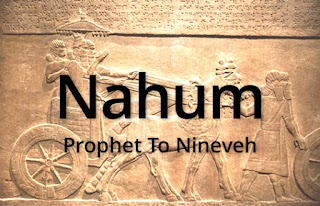If you don’t like what you are reaping, change what you are sowing! It is not enough just to be courteous to others, we actively have to show unconditional love
1 Thessalonians 3:1-3 ‘So when we could stand it no longer, we thought it best to be left by ourselves in Athens. We sent Timothy, who is our brother and co-worker in God's service is spreading the gospel of Christ to strengthen and encourage you in your faith, so that no one would be unsettled by these trials’
Source: Harper Collins Publications
Recent Time - This last year, has been challenging for us all with the pandemic and it will have affected us all in different ways. Some folks, living on their own, unable to socialise, unable to go to church, because of age, infirmity or vulnerability. Many folks we have spoken to, are just longing to have a cuddle, to feel loved by others. As Christians, we know that Jesus embraces us, and keeps us under the shadow of His wing (Psalm 91). However, as humans we were created to have fellowship with one another. Thank God for social media and the internet, but not everybody is fortunate to have these facilities, especially those of the mature generation!
Paul's Journeys - Paul and his companions had arrived in Thessalonica on his second missionary journey in AD 58 and planted the first church in that city. Thessalonica was also a seaport trade centre, on the North-West corner of the Aegean Sea in Greece. Previously, Paul had been with his followers in Philippi, and were treated outrageously; 1 Thessalonians 2:18 ‘For we wanted to come to you, certainly I, Paul did, again and again, but Satan blocked our way'. So, Paul sent Timothy to visit, to strengthen and encourage them in their faith, so that no one would be unsettled by these trials.
Building Each Other Up - As Christians, we all have seasons in our lives of discouragement, opposition and separation. Many folks are starved of encouragement and acceptance. Our stiff British upper lip denies us from admitting our needs. We are afraid of being thought of as weak or being rejected. We all need each other; we are all equal in God’s sight;
James 5:16 ‘Therefore confess your sins to each other and pray for each other, so that you may be healed. The prayer of a righteous person is powerful and effective’.
John 13:16 ‘Very truly I tell you, no servant is greater than his master, nor is a messenger greater than the one who sent him’.
1 Thessalonians 5:11 ‘Therefore encourage one another and build each other up, just in fact you are doing’.
2 Corinthians 1:3-4 ‘Blessed be the God and Father of our Lord Jesus Christ, the Father of mercies, and God of all comfort, who comforts us in all our tribulation, that we may be able to comfort those who are in trouble, with the comfort with which we are comforted by God’.
Fruit From our Labours - The dictionary defines encouragement like this; ‘If someone is encouraged, by something that happens, it gives them hope and confidence’. For example, by telling them what they are doing is good, and telling them that they should not give up if things are not going so well! Victory in Jesus will come if we persevere and ‘keep pressing on’.
Source: The Living....Tumblr
My wife was given a prophecy many years ago; ‘Don't let a day go by without blessing somebody’. She has endeavoured to do that either by prayer, phone, text or letter etc, regardless of perhaps needing encouragement herself. Paul states in 1 Thessalonians 3:10 ‘Night and day, we pray most earnestly that we may see you again and again, and supply what is lacking in your faith. It brings joy to a Christian, to see fruit from their labours’. Paul had experienced this joy countless times. Only God can change a person’s life. But He will use His people to be an instrument in the process to do it. If you don’t like what you are reaping, change what you are sowing! It is not enough just to be courteous to others, we actively have to show unconditional love.
Having an Increase of God’s Love – In 1 Thessalonians 3:12 Paul continues; ‘May the Lord make your love increase and overflow for each other and for, everyone also, just as ours does for you’. Only God can increase our love for one another. How? Jesus tells us in John 13:35 ‘If you have love for one another, they will know that you are My disciples’. People will be attracted to you. Although it has been difficult during lock-down to express our love to others, ask the Lord who needs encouragement today. Send a text, card, or cal them, just to tell them you were thinking of them. If your feel that your capacity to love has waned, ask God to fill you again with His never-ending supply. Paul encourages us; Philippians 4:13 ‘I can do all things in Christ who strengthens me’.
1 Thessalonians 3:13 ‘May He strengthen your hearts, so that you will be blameless and holy in the presence of God and Father, when our Lord Jesus comes with His holy ones’.
Amen.
Author: John YatesMay God bless and enrich your life
Please feel free to share this article and other articles on this site with friends, family and others








